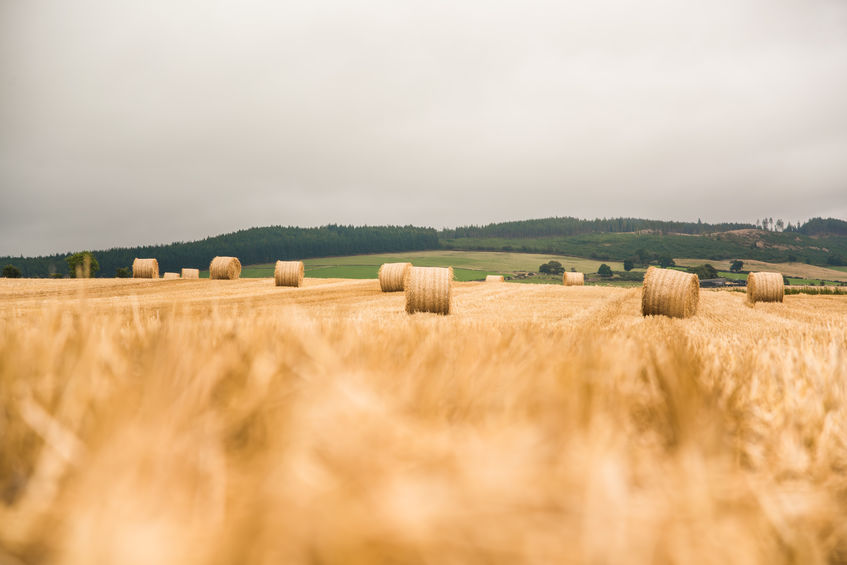Weather and uncertainty brings harvest to 'halt' in Scotland

A week of continuous rain and market uncertainty has brought the harvest in Scotland to a 'halt', farmers warn.
For many growers, a week of continuous rain has made accessing fields with heavy harvesting equipment challenging.
A developing problem is the ability to move crops off farm that have already been harvested.
Growers report a slowdown in uplift of grain for delivery to processors and a poor market for feed grain.
The result is on-farm stores needing to be cleared either for more grain or for livestock when they come in for the winter.
Making disposals more difficult for some is that the wet weather is causing grain quality issues as sprouting and germination, leading to rejections.
Modern, very tight specifications can be hard to achieve in poor weather conditions, NFU Scotland says.
Downgraded grain from quality markets needs to find a home and when it does the price is lower with additional drying charges pushing returns below cost of production.
The knock-on effect of rejections is even more feed grain building up on farms, exacerbating storage and marketing issues, it adds.
The union has written to key organisations in the supply chain – Agricultural Industries Confederation (AIC); Scottish Agricultural Organisation Society (SAOS); Maltsters’ Association of Great Britain (MAGB) and Road Haulage Association (RHA) – to consider what can be done to ease the transport storage problems that are building up.
Combinable Crops Chairman Ian Sands, who farms at Balbeggie near Perth said: “The promise of a successful Scottish harvest is being eroded by wet weather and market uncertainty.
“The volume of rain experienced in the past week means getting combines and trailers on to sodden ground to harvest crops is a real challenge that only a prolonged period of dry weather will remedy.
“As a result of the weather, growers are experiencing rejections for grain grown for quality markets because of issues such as sprouting and germination. The knock on from that is a surplus of feed grain on farm, with limited storage and limited demand.”
Mr Sands added that continued Brexit uncertainty is a factor in halting a lot of merchant feed grain purchases.
The threat of a ‘no deal’ Brexit and the potential for tariffs of over £80 per tonne on exports to the EU and zero percent tariffs on imports are 'significantly undermining' market prospects, he said.
“It remains to be seen whether ongoing political wrangling and the possibility of a ‘no deal’ being take off the table provide a floor to the export market in the short term.”
Mr Sands added: “To ease the disruption, the supply chain must work together to overcome transport and intake issues and that is why we have written to key stakeholders.
“Growers can help too by liaising with their merchants and buyers and scheduling haulage to minimise delays and maximise the limited availability to haulage that we have.”








